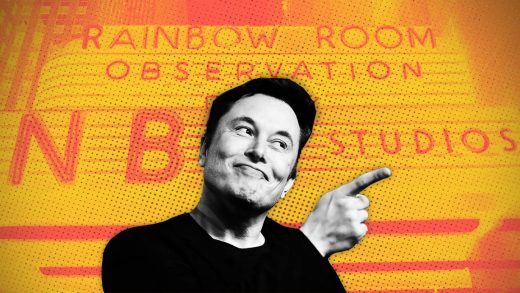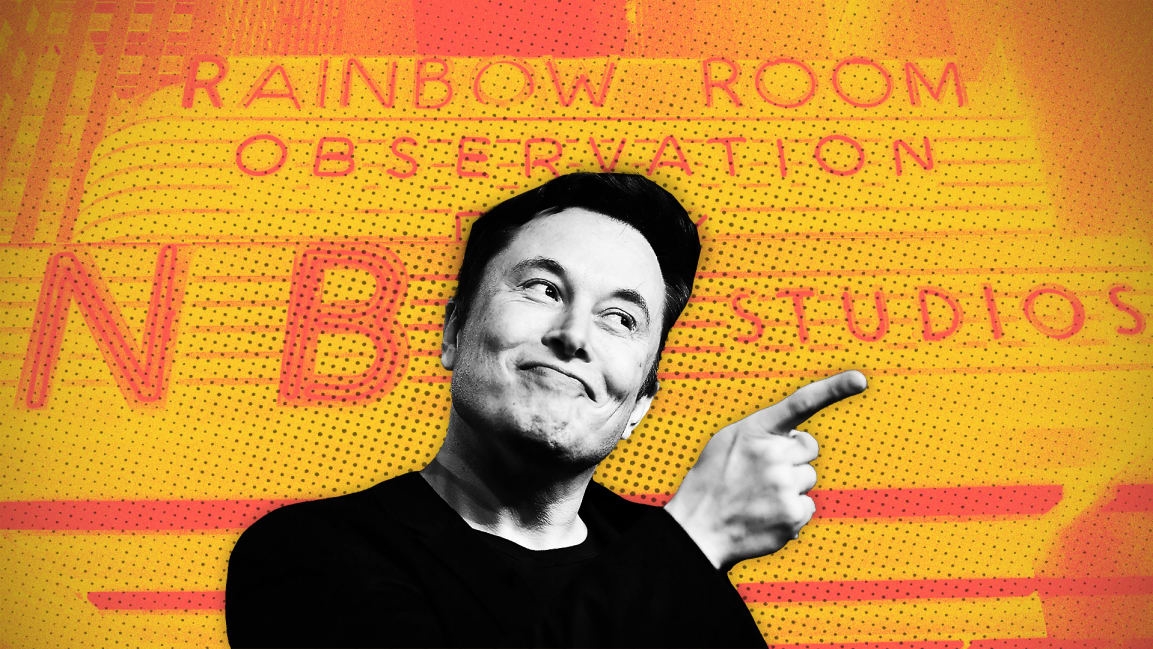Forget dogecoin, the real winner of Elon Musk hosting ‘Saturday Night Live’ is ‘SNL’
Okay quick, when was the last time you were talking about who was hosting Saturday Night Live two weeks ahead of the show?
The correct answer is: Never.
Even for the most hard-core SNL fans, hosting duties are typically a quick eyebrow-raising piece of news. Do you know who’s hosting two weeks from now? Exactly. (It’s Anya Taylor-Joy.) Only after a particularly funny or cringeworthy performance is an SNL host really discussed with pointed interest. But when NBC announced last month that Tesla and Space X CEO Elon Musk would be hosting on May 8, cue the mass-posting of head-exploding emoji.
Here we had one of richest people on the planet, a current CEO of multiple companies, and a social-media juggernaut signing up for live sketch comedy. It’s the closest thing to “Must See TV” that a broadcast show can have in 2021. Not only for the sheer potential of either a comedic triumph or an embarrassing bomb—either way, we’re laughing—but also the IRL big-money implications, whether that’s Tesla stock or the value of dogecoin. The parody cryptocurrency’s value has doubled over the past week, leading up to Musk’s appearance.
Don’t forget to pencil in the SNL opening as a key market event risk for next week.
— Tracy Alloway (@tracyalloway) May 6, 2021
The real winner is Saturday Night Live itself. Here we have a broadcast television show in the year 2021 that has the rapt attention of a culture long fragmented across an ever-splintering entertainment media landscape. If Musk kills and the space-, doge-, and EV-related sketches are a hit? SNL wins. If Musk bombs, exposing his comedic talent to be as thin as his ability to produce his own memes? SNL still wins. This may be the most zeitgeist-y episode in the show’s 46-year history.
At a time when broadcast viewership and ad revenues have been pillaged by digital platforms, what is weeks of free publicity and near-constant chatter worth? Much like Tesla stock, the more Musk tweets and is discussed, the more interest builds for his SNL debut.
According to Nielsen ratings, the best-rated seasons of the show were 1979-80, which had a 13.5 household rating, and 1992-93 at 9.1. While the 2007-08 season, shortened by a writers’ strike, ranks as the worst, 2006-07 and 2014-15 tied for worst full seasons at 4.6. The show got a Trump bump in 2016-17—its top-rated season in more than 20 years, thanks in large part to Alec Baldwin’s Trump impression and Kate McKinnon’s Hillary Clinton. But even in that hype-heavy season, most of the chatter was in hindsight and fleeting.
Like it or not, our attention economy is almost exclusively fueled by hype and anticipation. Viral moments. Social conversation. Once the hype flywheel starts, the spinning is boosted every time that hype itself is acknowledged. Google “Musk SNL” and witness the barrage of commentary and coverage over the past two weeks, the promotional value that marketers would likely peg in the hundreds of millions, if not billions of dollars.
Musk on SNL is also just the latest example of the pop culture fixation of everything. Just as sports have become year-round fodder for rumors and hype—far beyond the field of play—we’re seeing what Founders Fund principal John Luttig calls the “financialization of culture,” where the product of the financialization of tech and the technification of culture is pervasive finance culture. It’s where GameStop, r/wallstreetbets, Robinhood, dogecoin, and, yes, Tesla meet memes and social media. As Luttig puts it, “What Instagram did to body image, wallstreetbets and Twitter are doing to bank account image.”
So now, however briefly, old-school media stalwart SNL has managed to hook into the biggest hype fish of this era.
There is of course plenty of ammunition in the arguments objecting to Musk’s appearance. The show is hosting one of the richest people on the planet, an anti-labor billionaire who barely donated anything to COVID-19 relief (even questioning the severity of the virus at one point), yet he got astronomically rich during the pandemic. Even the cast of SNL appears to be split, with Aidy Bryant and Bowen Yang voicing their concerns, while Michael Che and Pete Davidson appear to have welcomed their benevolent tech overlord with open arms. Davidson summed up the broad curiosity of many when he told Seth Meyers, “I’m excited. I’m gonna ask him for a Tesla. I don’t know why people are freaking out. They’re like, ‘I can’t believe Elon Musk is hosting,’ and I’m like, really? The guy who makes the Earth better, kinda?”
But it was Che who really hit the nail on the head when he told The Breakfast Club, “He’s a polarizing guy. I think that’s what makes the show exciting. . . . I think it’s a good thing. I think it means people still care about the show.”
Fast Company , Read Full Story
(39)



